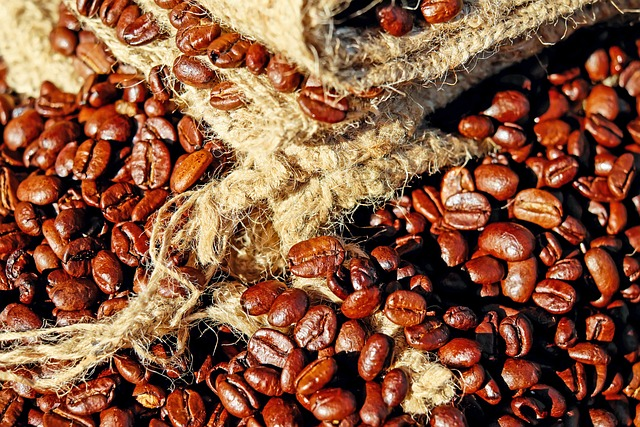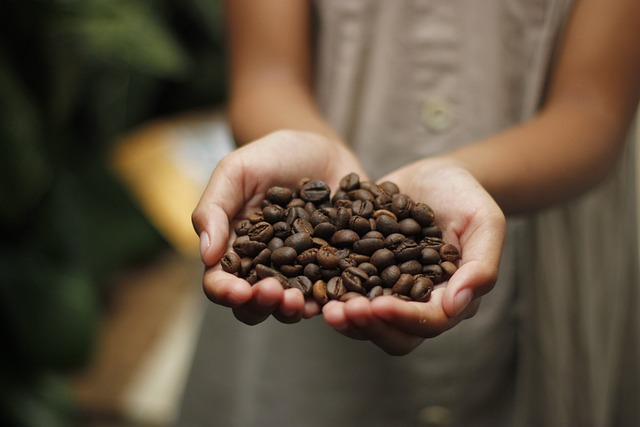
Is Fair Trade Coffee Really Fair?
Share
Quick Sips on Fairtrade Coffee
- According to the OEC, coffee drives the trade of over 45 billion dollars per year. Still, some coffee farmers struggle to make a decent living and can't sell their produce at a fair price.
- Fair trade coffee aims to tackle these challenges by ensuring that coffee farmers receive fair compensation and work under decent conditions.
- This article will go over some of the main benefits and challenges of fair trade coffee. We'll also compare it to direct trade coffee to find out just how "fair" fair trade coffee is.
- Shopping for Fairtrade coffee? Check out our full line right here!
What is Fair Trade-Certified Coffee?
First of all, you should know that "fair trade" isn't specific to any organization. Fairtrade International (FLO) is particularly relevant as a major international certifying body. It sets the world's standards for fair trade certification and has a track record of working with many commodities.
To get a certification, the product — as well as its production process — must follow certain standards. The farm can apply for certification, but it will get audited and corrective measures will be taken before granting it any benefits.
A Quick History of Fair Trade
The fair trade movement began after World War 2 but didn't expand to coffee until the late 80s. During that time, coffee prices were regulated by the United Nations International Coffee Organization, which negotiated agreements between suppliers and importers.
The practice and term fair trade coffee flourished after the coffee crises of 1988 saw plummeting coffee prices and disruptions in the market.
Fair trade international was established in 1997 and has since expanded to many countries. Fair Trade USA appeared in 1998, and in 2023, Fairtrade International and the United Nations Industrial Development Organization (UNIDO) signed a joint declaration to promote sustainable supply chains.
Small-scale farmers produce over 60% of the world's coffee, and fair trade certification helps to ensure they are treated properly. So what does it really mean to be "fair trade"?
Fair Trade Certifications
There are basically three standards that a product must meet under a fair trade model.
Social Standards
The aim is to establish clear rules for the local logistics of farms, even if this doesn't necessarily correlate with coffee quality. These are the key points:
-
No child labor: producers must comply with international regulations on the topic.
-
No forced labor: this includes paid forced labor.
-
Safe conditions: producers must ensure healthy conditions and a safety net for workers.
-
Fair salaries: usually entails paying workers at least the minimum local wage.
Economic Standards
You might think that fair salaries would fall under this category, but not really. It's more about the commodity of coffee itself and the coffee industry. Here are the key standards:
-
Fair trade price: farmers must receive a price floor that covers their production costs.
-
Fair trade premium: then, there's an additional sum for community projects such as cooperatives, which we've talked about many times.
-
Transparency and traceability: the products must be traceable throughout the supply chains, and all the farm's finances should be transparent.
Environmental Standards
Sustainable farming has been practiced from the get-go in places like Guatemala and Honduras, where coffee farming is a native tradition. Still, these fair trade standards provide incentives for coffee farmers to stay on top of the game within the fair trade system, producing eco-friendly high-quality coffee.
Sustainable coffee: farmers must ensure the environmental sustainability of their operation. This includes soil, water, and waste management; as well as discontinuing the use of harmful chemicals.
Climate Change: a relatively new rule is that farmers should take climate change into account and adapt their practices to it.
Benefits of Fair Trade Coffee

There are many benefits to selling fair trade coffee. A few stand out though, because they're the driving factor behind the growth of the coffee market.
Community Development
When they adhere to fair trade standards, farmers often receive premiums on top of a normal minimum or market price for coffee. These are intended to benefit the community through collective community projects such as building schools and developing infrastructure.
You have to step outside of your daily reality and remember that coffee farmers are generally from developing countries where our day-to-day utilities aren't always prevalent. And, coffee is a family business for many small-scale farmers! The owners want their children to be healthy and educated so they can take over the business in the future.
Cooperatives generally help with this aspect, as well as local regulatory bodies that link farmers with international organizations.
Environmental Sustainability
You already know about sustainable farming practices, but one of the most important issues here is the use of pesticides and other chemicals. These are the root of many health issues for workers, and also reduce the coffee's quality grade.
We've written an article talking about toxins in coffee, and how conventional herbicides and pesticides can be harmful to both the environment and consumers.
Economic Development
The main benefit for farmers is stability. They know they get a guaranteed minimum price which safeguards them against volatile markets. They also don't need to worry about having a fair trade price paid for their coffee over time.
This, in turn, allows them to invest in long-term projects that improve their quality of life. It goes without saying that these economic benefits are the most sought-after among coffee farmers.
Market Price and Access
Much in line with what you just read, you should remember that coffee farmers often live in remote regions. In previous articles, we've talked about the case of CENFROCAFE in Peru, a cooperative that's helped most of the country's coffee producers access international markets.
For coffee growers, fair trade certifications can be a highway to better prices and higher demand.
Some Challenges of Fair Trade Coffee

You've already heard that better prices can encourage farmers to seek fair trade certification. Unfortunately, this sometimes leads to farmers certifying lower-quality coffee to secure a better deal! While this isn't always the case, it remains one of the primary criticisms of fair trade coffee.
And, there are a few of these criticisms or problems with fair trade and the specialty coffee market, so let's go through them.
Quality incentives
Because farmers get a guaranteed fair trade minimum price, this can reduce incentives for quality beans. Some of the best coffee beans never go through the fair trade process simply because they don't need to! With the proliferation of coffee lovers and better coffee globally, some coffee buyers will simply opt for the best bean – fair trade or not. That means low quality beans can be "remarketed" as fair trade to boost the price of coffee that may be consistently lower quality. While that in itself isn't a bad thing, it does mean that "fair trade" is not always synonymous with "top quality."
Geographical disparities
The costs of getting certified along with other causes means that many times, the farmers who could benefit the most from fair trade are left out.
For example, many African producers are underrepresented in terms of fair trade certifications.
Cost of certification
Probably the main criticism of Fair Trade coffee is the high cost of obtaining and maintaining the certification. Smallholder farms can struggle to meet the standards, excluding them from the fair trade system.
Once again, this financial burden leaves out those who need fair trade certifications the most.
Profit distribution
There are so many intermediaries in the process of fair trade coffee that they end up absorbing a significant portion of the retail price.
However, there's another trading method that people consider an alternative to fair trade. It cut's off intermediaries, ensures farmers receive high prices — even higher than the fair trade price — and fosters long-term partnerships.
Direct Trade vs. Fair Trade
Direct trade coffee is a sourcing model that emphasizes direct relationships between coffee roasters and farmers. Direct trade entails fair trade coffee roasters sourcing coffee directly from farmers, bypassing intermediaries, and building direct relationships with their suppliers.
This approach allows for greater transparency and traceability, with a strong focus on quality control and long-term partnerships. However, fair trade and direct trade are not opposing practices.
The idea here is that you can offer coffee farmers a better price because you're saving money on intermediaries. This is actually true in many cases, and roasters tend to favor long-term relationships with quality suppliers!
Both fair trade and direct trade aim to raise worker's wages and support communities. However, direct trade practices aren't standardized like fair trade.
Making Fair Trade Coffee Fairer

Fair trade is quite good, but it's even better to know your supplier, the coffee grower. This means that it's best when trade is fair and direct, so there are both personal relationships and accountability.
Enhancing fair trade could mean reducing the cost of certification or finding a way to include more small-scale operations in the model, focusing on the regions that could most benefit from fair-trade coffee.
A great initiative for roasters is to do what we can to combine both systems.
At Philly Fair Trade, we strive to buy direct and/or fair trade and organic when it makes sense – but best is when we know our growers! For example, our Peru coffee is grown by the Tocto family in the region of Cajamarca. They have their own operation called Finca Churupampa, and it's an example of a community-oriented farm. We have a long-standing relationship, and there's mutual trust built into this coffee.
How You Can Help
While buying organic, fair-trade certified coffee is the best you can do to ensure that your coffee matches your values, there's another level of diligence.
Consumers should make informed choices, prioritizing companies that actually care about the farmers and don't marry themselves to fair trade out of pure convenience.
This is one of our mantras, but it's true: source only from reputable vendors who have a track record of experience with farmers. This ensures that you're not just being sold a myth.
Coffee drinkers have all the power in the market to demand ethically sourced products, encouraging companies to adopt those practices. The only thing left to do is to increase consumer awareness on this issue and work towards making everyone's coffee better and fairer.
If you're looking for some coffee that's both good for you and good for others, shop here!
